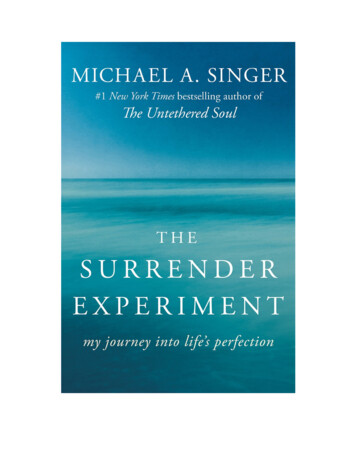
Transcription
Copyright 2015 by Michael A. SingerAll rights reserved.Published in the United States by Harmony Books, an imprint of the Crown Publishing Group, adivision of Penguin Random House LLC, New York.www.crownpublishing.comHarmony Books is a registered trademark, and the Circle colophon is a trademark of PenguinRandom House LLC.The Surrender Experiment is a trademark of Shanti Publications, Inc.Library of Congress Cataloging-in-Publication Data is available upon request.ISBN 9780804141109eBook ISBN 9780804141116eBook design adapted from printed book design by Amanda DeweyCover design by Fort & Jess MorphewCover illustration by Shutterstock/David M. Schraderv4.1a
To the Masters
ContentsCoverTitle PageCopyrightDedicationAcknowledgmentsSection IWaking UpThe Premise1. Not with a Shout—But with a Whisper2. Getting to Know Me3. The Pillars of Zen4. Absolute Silence5. From Absolute Peace to Absolute Turmoil6. South of the Border7. Disconnecting the Panic Button8. Unexpected Inspiration9. The Promised Land10. Building a Sacred Hut11. Get Thee to a Monastery12. When the Disciple Is Ready, the Master Appears
Section IIThe Great Experiment Begins13. The Experiment of a Lifetime14. Life Takes Charge15. The Prince and the Pauper16. Following the Invisible into the Unknown17. My First Job Interview18. Letting Go of the Rope19. Acceptance, Acceptance, and More Acceptance20. The Most Important Thing I Was Ever Asked to DoSection IIIFrom Solitude to Service21. The Call of a Living Master22. Shaktipat23. Gainesville Hosts a Guru24. The Temple Is Built25. Opening the Heart Chakra26. Get Thee to an AshramSection IVThe Business of Surrender27. A Company Is Born28. The Master Builder
29. Community Banking30. The Ever-Expanding Temple of the Universe31. Metamorphosis of a CreatureSection VSomething Priceless Is Born32. From the Personal Self to the Personal Computer33. The Birth of The Medical Manager34. The Early Programmers35. Preparing for LaunchSection VIThe Forces of Natural Growth36. The Foundations of a Successful Business37. The Industry Knocks on Our Door38. The Temple Keeps GrowingSection VIIWhen Dark Clouds Become Rainbows39. A Touch of Magic40. The Scary Messenger of Change41. The Foundation Is Built for the Future42. Meanwhile—Back at the Ranch
Section VIIIEmbracing Explosive Expansion43. The Medical Manager Sprouts Wings44. Medical Manager Corporation—MMGR45. Becoming CEO46. The Internet and Health Care47. Merging—But Not with the Universe48. Building Rome in a Day49. Hanging Out in WashingtonSection IXTotal Surrender50. The Raid51. Attorneys, Attorneys, and More Attorneys52. United States of America v. Michael A. Singer53. Preparing a Defense54. The Constitution and the Bill of Rights55. Divine Intervention56. Returning to the BeginningAbout the AuthorMore by the Author
AcknowledgmentsIn truth, life is really the author of this book. She is the one whomanifested the flow of events that were so powerful and fascinating theydemanded narration. But life needed me to put pen to paper if hergreatness was to be memorialized. To that end, she sent exactly the rightpeople at exactly the right time to bring The Surrender Experiment intofruition.It is with humility and heartfelt thanks that I tell you of thephenomenal job that my product manager, Karen Entner, did on thisbook. Her tireless and selfless service has instilled this work with a senseof commitment and perfection rarely found in this world.I would also like to take this opportunity to thank my editor, GaryJansen, from Crown Publishing, for all the hard work and greatsuggestions he contributed. As would be expected, life provided theabsolutely perfect editor to assist me in giving this testimony to hergreatness.This book had many early readers, all of whom deserve thanks. I wouldlike to single out James O’Dea, Ursula Harlos, and Stephanie Davis, whocontributed detailed suggestions on draft after draft during the earlystages of writing.I now get to acknowledge you, the reader, for having the interest andtaking the time to read about this phenomenal experiment. May we alllearn to appreciate our lives in this amazing universe—a little bit moreeach day.
Section IWaking Up
The PremiseSitting alone in a six-seater private jet at forty thousand feetis a very peaceful place. I fell into meditation and my mindbecame very still. When I opened my eyes, I absorbed thetremendous difference in my environment from when I hadfirst moved out to the woods to be alone and meditate.Though I still lived in those same woods, my place of solitudehad grown into a thriving yoga community, and I hadbecome CEO of the public corporation that life had somehowmagically manifested around me. It was now perfectly clearto me that all of these life experiences, including running abusiness at this level, were doing as much to free mespiritually as my years of solitary meditation. Just asHercules used the flow of rivers to clean out the Augeanstables, so the powerful flow of life was cleaning outwhatever was left of me. I just kept letting go and practicingnonresistance, whether I liked what was happening or not.It was in this frame of mind that I was flying off to Texas todiscuss the billion-dollar merger offer for my company froma powerful CEO whom I had never even met.My Reflections, May 1999Life rarely unfolds exactly as we want it to. And if we stop and thinkabout it, that makes perfect sense. The scope of life is universal,and the fact that we are not actually in control of life’s eventsshould be self-evident. The universe has been around for 13.8 billionyears, and the processes that determine the flow of life around us did notbegin when we were born, nor will they end when we die. What manifestsin front of us at any given moment is actually something trulyextraordinary—it is the end result of all the forces that have been
interacting together for billions of years. We are not responsible for eventhe tiniest fraction of what is manifesting around us. Nonetheless, wewalk around constantly trying to control and determine what will happenin our lives. No wonder there’s so much tension, anxiety, and fear. Eachof us actually believes that things should be the way we want them,instead of being the natural result of all the forces of creation.Every day, we give precedence to our mind’s thoughts over the realityunfolding before us. We regularly say things like, “It better not rain todaybecause I’m going camping” or “I better get that raise because I reallyneed the money.” Notice that these bold claims about what should andshouldn’t be happening are not based on scientific evidence; they’rebased solely on personal preferences made up in our minds. Withoutrealizing it, we do this with everything in our lives—it’s as though weactually believe that the world around us is supposed to manifest inaccordance to our own likes and dislikes. If it doesn’t, surely something isvery wrong. This is an extremely difficult way to live, and it is the reasonwe feel that we are always struggling with life.Nonetheless, it is also true that we are not powerless in the face of theevents unfolding around us. We have been gifted with the power of will.From deep inside, we can determine how we want something to be andapply the power of our minds, hearts, and bodies in an attempt to makethe outside world conform. But this puts us in a constant battle of ourway versus the way it would be without our intervention. This battlebetween individual will and the reality of life unfolding around us ends upconsuming our lives. When we win the battle, we are happy and relaxed;when we don’t, we are disturbed and stressed. Since most of us only feelgood when things are going our way, we are constantly attempting tocontrol everything in our lives.The question is, does it have to be this way? There is so much evidencethat life does quite well on its own. The planets stay in orbit, tiny seedsgrow into giant trees, weather patterns have kept forests across the globewatered for millions of years, and a single fertilized cell grows into abeautiful baby. We are not doing any of these things as conscious acts ofwill; they are all being done by the incomprehensible perfection of lifeitself. All these amazing events, and countless more, are being carried outby forces of life that have been around for billions of years—the very sameforces of life that we are consciously pitting our will against on a daily
basis. If the natural unfolding of the process of life can create and takecare of the entire universe, is it really reasonable for us to assume thatnothing good will happen unless we force it to? It is to the exploration ofthis intriguing question that this book is devoted.How can there possibly be a more important question? If life canmanifest the DNA molecule on its own, not to mention create the humanbrain, how is it that we feel that we have to control everything on ourown? There must be another, more sane way to approach life. Forexample, what would happen if we respected the flow of life and used ourfree will to participate in what’s unfolding, instead of fighting it? Whatwould be the quality of the life that unfolds? Would it just be randomevents with no order or meaning, or would the same perfection of orderand meaning that manifests in the rest of the universe manifest in theeveryday life around us?What we have here is the basis for an amazing experiment. At the heartof the experiment is a simple question: Am I better off making up analternate reality in my mind and then fighting with reality to make it bemy way, or am I better off letting go of what I want and serving the sameforces of reality that managed to create the entire perfection of theuniverse around me? This experiment would not be about dropping outof life; it would be about leaping into life to live in a place where we areno longer controlled by our personal fears and desires. For lack of a bettername, I have called this “the surrender experiment,” and to the best of myability, I have devoted the last forty years of my life to seeing where theflow of life’s events would naturally take me. What happened over thecourse of these four decades is nothing short of phenomenal. Not only didthings not fall apart, quite the opposite happened. As one thing naturallyfollowed the other, the flow of life’s events led me on a journey that wouldhave been beyond my comprehension. This book shares that journey withyou so that you can experience what happened when someone dared tolet go and trust the flow of life.Let it be clear right from the start, however, that this type of surrenderdoes not mean living life without the assertion of will. My story of theseforty years is simply the story of what happened when the assertion ofwill was guided by what life was doing instead of what I wanted it to bedoing. My personal experience is that aligning one’s will with the naturalforces unfolding around us leads to some surprisingly powerful results.
The only effective way to share the results of this great experiment is toallow you to see how I got pulled into living this way and then allow youto experience the journey as I did. In what follows, you are about toencounter a set of life experiences that are bound to be very differentfrom your own. I share these with you only because as human beings wehave the extraordinary ability to learn from one another’s experiences.You don’t have to live as I did in order to be affected by what happened tome. The unexpected events that unfolded before me not only changed mylife, they changed my entire view of life and left me with a sense of deepinner peace. Hopefully, sharing my surrender experiment with you willencourage you to find a more peaceful and harmonious way to live yourlife and to better appreciate the amazing perfection that unfolds aroundus.
1.Not with a Shout—But with a WhisperMy given name is Michael Alan Singer. From as far back as I canremember, everyone has called me Mickey. I was born May 6,1947, and lived a fairly ordinary life until the winter of 1970.Then something happened to me that was so profound that it foreverchanged the direction of my life.Life-changing events can be very dramatic and, by their very nature,disruptive. Your whole being is headed in one direction physically,emotionally, and mentally; and that direction has all the momentum ofyour past and all the dreams of your future. Then suddenly, there’s amajor earthquake, a terrible sickness, or a chance encounter that totallysweeps you off your feet. If the event is powerful enough to change thefocus of your heart and mind, the rest of your life will change in duecourse. You are literally not the same person on both sides of a truly lifechanging event. Your interests change, your goals change, in fact, theunderlying purpose of your life changes. It usually takes a very powerfulevent to turn your head around so far that you never look back.But not always.In the winter of 1970, no such event happened to me. What happenedwas so subtle, so faint, that it could easily have passed by without beingnoticed. It was not with a shout but with a whisper that my life wasthrown into utter turmoil and transformation. It has been more thanforty years now since that life-changing moment, but I remember it as ifit were yesterday.I was sitting on the living room couch in my home in Gainesville,Florida. I was twenty-two years old and married at the time to a beautifulsoul named Shelly. We were both students at the University of Floridawhere I was doing my graduate work in economics. I was a very astute
student, and I was being groomed by the chairman of the economicsdepartment to become a college professor. Shelly had a brother, Ronnie,who was a very successful attorney in Chicago. Ronnie and I became closefriends even though we were from totally different worlds. He was apowerful, wealth-driven, big-city attorney, and I was a ’60s-groomed,college-intellectual hippie. It is worth mentioning just how analyticallyoriented I was at the time. I had never even taken a philosophy,psychology, or religion course while in college. My electives at schoolwere symbolic logic, advanced calculus, and theoretical statistics. Thismakes what happened to me all the more amazing.Ronnie would come down once in a while to visit, and we would oftenjust hang out together. As it turns out, Ronnie was sitting on that couchwith me on that fateful day in 1970. I don’t remember exactly what wewere talking about, but there had been a lull in our leisurely conversation.I noticed I was uncomfortable with the silence and found myself thinkingof what to say next. I had been in similar situations many times before,but something was quite different about this experience. Instead ofsimply being uncomfortable and trying to find something to say, I noticedthat I was uncomfortable and trying to find something to say. For the firsttime in my life, my mind and emotions were something I was watchinginstead of being.I know that it is difficult to put into words, but there was a completesense of separation between my anxious mind, which was spewing outpossible topics to talk about, and me, the one who was simply aware thatmy mind was doing this. It was like I was suddenly able to remain abovemy mind and quietly watch the thoughts being created. Believe it or not,that subtle shift in my seat of awareness became a tornado thatrearranged my entire life.For a few moments, I just sat there inwardly watching myself try to“fix” the awkward silence. But I was not the one trying to fix it; I was theone quietly watching the activity of my mind trying to fix it. At first therewere only a few degrees of separation between me and what I waswatching. But every second the separation seemed to become greater andgreater. I was not doing anything to cause this shift. I was just therenoticing that my sense of me no longer included the neurotic thoughtpatterns that were passing in front of me.
This entire process of “becoming aware” was practically instantaneous.It was like when you stare at one of those posters that has a hiddenpicture inside. At first it appears to be just a circle with line patterns.Then, suddenly, you see an entire 3-D image emerge from what originallylooked like chaos. Once you see it, you can’t imagine how you hadn’t seenit before. It was right there! Such was the shift that happened inside ofme. It was so obvious—I was in there watching my thoughts andemotions. I had always been in there watching, but I had been toounaware to notice. It was as though I had been so involved in their detailsthat I never saw them as just thoughts and emotions.Within seconds, what previously seemed like important solutions forhow to break the uncomfortable silence was now sounding like a neuroticvoice talking inside my head. I watched as that voice tried out things tosay:The weather’s been awesome, hasn’t it?Did you hear what Nixon did the other day?Do you want to get something to eat?When I finally did open my mouth to say something, what I said was:“Have you ever noticed that there’s this voice talking insideyour head?”Ronnie looked at me a little weird, and then a spark lit in his eyes. Hesaid, “Yes, I see what you’re talking about—mine never shuts up!” Idistinctly remember making a joke out of it by asking him what it wouldbe like if he heard someone else’s voice talking in there. We laughed, andlife went on.But not my life. My life didn’t just “go on.” In my life, nothing wouldever be the same again. I didn’t have to try to maintain this awareness. Itwas who I was now. I was the being who was watching the incessant flowof thoughts pass through the mind. From the same seat of awareness, Iwatched the ever-shifting current of emotions pass through the heart.When I showered, I saw what that voice had to say while I was supposedto be washing my body. If I was talking to someone, I watched as thatvoice figured out what to say next—instead of listening to what the other
person was saying. If I went to class, I watched my mind play the game oftrying to think ahead of the professor to see if it could figure out where hewas going with the lecture. Needless to say, it did not take long before thisnewly found voice inside my head really started to annoy me. It was likesitting next to someone in a movie theater who never, ever stops talking.As I observed that voice, something deep inside my being just wanted itto shut up. What would it be like if it stopped? I began to long for silenceinside. Within days of that first experience, my life’s patterns began tochange. When friends came over to socialize, I no longer enjoyed thescene. I wanted to quiet my mind, and social activities didn’t help. Ibegan to excuse myself and go out to the woods near our house. I wouldsit down on the ground amid the trees and tell that voice to shut up. Ofcourse, it didn’t work. Nothing seemed to work. I found that I couldchange the topic it talked about, but I could not get it to just stop talkingfor any length of time. My yearning for inner silence became a passion. Iknew what it was like to watch the voice. What I didn’t know is what itwould be like if the voice totally stopped. And what I never could haveimagined was the life-changing journey on which I was about to embark.
2.Getting to Know MeEven in my youth, I loved to figure out how things worked. So it wasinevitable that my analytical mind would become fascinated bytrying to understand my relationship to the voice inside my head.Before I could enjoy this intellectual fascination, however, I had to getover the fact that the personal mind was driving me crazy. Every time Isaw something, that voice made some comment about it: I like it ; Idon’t like it ; I’m not comfortable with this ; This reminds me of As Ibecame more and more accustomed to watching all this, a few questionsnaturally arose. First, why is this voice talking all the time? If I seesomething, I’m instantly aware of seeing it. Why does the voice have totell me that I see it and how I feel about it?Here comes Mary. I don’t feel like seeing her today. I hopeshe doesn’t see me.I know what I see and I know what I feel. After all, I’m the one in hereseeing and feeling. Why does it have to get vocalized in my mind?Another question that arose was who am I who keeps noticing all thismental activity? Who am I who can just watch thoughts come up with acomplete sense of detachment?I now had two driving forces awaken inside regarding this newly foundvoice in my head. One was the desire to shut it up and the other was thepure fascination and yearning to understand what that voice was andwhere it came from.I mentioned that prior to this inner awakening, my life was prettyordinary. I only say that in comparison to what my life became. I becamea driven human being. I wanted to know about the voice I had discovered,and I wanted to know who I was—the one inside experiencing all of this. I
began to spend hours on end in the graduate school library. But I was notin the economics section; I was in the psychology section. There was noway that others had not noticed this voice talking inside. It was soprevalent that you couldn’t miss it. I scanned through Freud trying to findthe answers to my questions. I read book after book, but I found no directreference to the voice talking inside—not to mention any reference to theone who is aware that the voice is talking.In those days, I would talk about the voice to anyone who would listen.They all must have thought I was crazy. I remember one encounter withmy very reserved, highly cultured Spanish professor. I ran into him oneday between classes and excitedly told him that I had come to understandwhat it meant to be fluent in a language. I explained to him that there wasthis voice inside your head that talks to you about virtually everything—what you like and dislike, what you’re supposed to be doing right now,and what you’ve done wrong in the past. If that inner voice could speak inSpanish and you immediately understood what it was saying, then youwere fluent in Spanish. If, however, the Spanish words made no sense toyou until you did the mental work of translating them so that the voicewould repeat them in English, then you were not fluent in Spanish. Itmade perfect sense—to me. I told him that if I were majoring in languagestudies, I would do my doctoral dissertation on that premise. Needless tosay, my Spanish professor gave me a very odd look, said something verypolite, and went on his way.I didn’t care what he thought. I was on an exploration, a journey oflearning beyond anything I could have imagined. Every day I waslearning so much about myself. I couldn’t believe the amount of selfconsciousness and fear being expressed through that voice. It was soobvious that the person I was watching inside cared a great deal aboutwhat people thought of him. This was especially true of people I knewwell. The voice told me what to say and what not to say. It complainedincessantly when something was not the way it wanted. If a conversationwith a friend ended with the slightest discord or disagreement, theconversation would keep going on inside my head. I would watch thevoice wishfully imagine how the conversation could have ended on adifferent note. I could see how much fear of rejection and nonacceptancewere being expressed through that mental dialogue. It was overwhelmingat times, but I never lost the perspective of watching a voice talking
inside. It was obvious it wasn’t me; it was something I was watching.Imagine if you woke up one day and a cacophony of noise was allaround you. You wanted it to stop, but you had no idea how to stop it.That is the effect the voice was having on me. One thing was perfectlyclear: that voice had always talked before. But I had been so lost in it thatI never noticed it as separate from me. It was like a fish not knowing it isin water until it gets out. One leap into the air and the fish instantlyrealizes, “There’s a body of water down there, and that is where I’vealways been. But now I see that I can get out.”I didn’t like the voice of the mind talking all the time. It was just like anirritating noise that I really wanted to stop. But it didn’t. For now I wasstuck with it. As it turns out, however, I had not yet begun to fight.
3.The Pillars of ZenMonths went by and I was still on my own with my innerexploration. Little did I know that help was about to arriveunexpectedly.I had a classmate in my doctoral program named Mark Waldman. Hewas a bright young man and an avid reader on a broad range of subjects.Like everyone else, Mark had heard me talking about my interest in thevoice. One day he brought me a book he thought might help. The bookwas entitled Three Pillars of Zen, by Philip Kapleau.I knew absolutely nothing about Zen Buddhism. I was an intellectualwho didn’t give religious matters a second thought. I was brought upJewish, but not very much so. By the time I reached college, religionplayed no part in my life. If you had asked me if I was an atheist, Iprobably would have given you a blank stare. I had never even thoughtabout it.I started leafing through the pages of the book on Zen, and withinminutes it became evident: this book was about that voice. My heartpractically stopped. I had trouble breathing. This book was clearly abouthow to stop that voice from talking. Passage after passage spoke aboutquieting the mind. It used terms like the True Self behind the mind.There was no doubt that I had found what I’d been looking for. I knewthere had to be others who had gained the perspective of watching thatvoice of the mind instead of identifying with it. Not only was there anentire legacy of knowledge spanning thousands of years that dealt withthe voice, but this book clearly discussed “getting out.” It talked aboutfreeing yourself from the hold of the mind. It talked about going beyond.Needless to say, I was in awe. I felt a reverence for this book that I hadnever felt for anything in my life. I had been forced to read and study so
many books in school. I now had in my hands a book that answered somereal questions for me, like who am I that watches that voice talk. Thesewere questions that I passionately wanted to know the answers to. Truthis, it was way beyond want. I needed to know these answers—that voicewas driving me crazy!What Three Pillars of Zen had to say was very clear and unequivocal. Itsaid to stop reading, talking, and thinking about your mind, and just dothe work necessary to quiet it down. The required work was equallyunambiguous—meditate.Before I even knew about meditation, I had tried sitting alone in orderto make the voice stop talking. But that had never worked for me. Withthis book, I was presented a tried-and-true method that had worked forthousands of others. Simply sit down in a quiet spot, watch your breathgo in and out, and mentally repeat the sound Mu. That’s it. Now do thatfor an ever-increasing length of time each day. In Zen, the real work wasgenerally done in a group setting called a sessin. In traditional settings, atrained person would walk around with a kyosaku stick. If you started tosleep or lost focus in another manner, you would get a smack on yourshoulders with the stick. Zen was strict; there was no playing around.This form of Zen was serious work.I didn’t have a group or a teacher. All I had was the book and a verysincere yearning to see if these practices would take me where I wanted togo. So I started to do Zen meditation on my own. At least it was my bestunderstanding of what Zen meditation is. At first I sat for fifteen ortwenty minutes each day. Within a week I built that to half an hour, twicea day. There were no fireworks or deep experiences. But concentrating onmy breath and the mantra was definitely diverting my awareness fromthe incessant chatter of the voice. If I made the mental voice say Mu, itcouldn’t say all the crazy personal things it usually said. I quickly began tolike the practice. I looked forward to the times I had put aside during theday for meditation.I was no more than a few weeks into my experiment with Zenmeditation when Shelly and I decided to go on a camping trip. We werejoined by four friends, and together we drove our vans into OcalaNational Forest for the weekend. I had a VW camper, so weekend tripswere an easy affair. But this trip wouldn’t turn out to be just another
camping trip—this trip was destined to have a profound impact on therest of my life.We found a secluded spot in the woods that opened up to a pristinewetland area. Once we situated our vans, we were overcome by the quietand beauty of the place. It dawned on me that this would be a good placeto do some meditation. I was just a novice, but I was very serious aboutdoing the practices and finding out what it would be like if the voiceactually stopped. I asked Shelly and our friends if I could spend sometime by myself. No one objected, so I meandered down by the grassy lakeand found a nice spot to sit. The whole notion of meditating was someaningful to me that from the start it was like a sacred experience. Ipicked a tree to sit under, just like the Buddha. Then, very dramatically, Itold myself, I’m not getting up until I’ve reached enlightenment.What happened under that tree that day was so powerful that even nowmy body shivers and my eyes begin to tear just to think about it.
4.Absolute SilenceIcrossed my legs in a full-lotus position. I knew I wasn’t proficientenough to hold that posture for long, but I thought I might as wellstart with the official meditation position. I straightened my backand neck, and I began to concentrate on my breath expanding andcontracting in my abdomen. The Zen book instructed me to make the Musound way down in my belly, below the belly button. I watched my breathgo in and out from way down there.I was intending to sit for much longer than I had done previously, so Iuse
52. United States of America v. Michael A. Singer 53. Preparing a Defense 54. The Constitution and the Bill of Rights 55. Divine Intervention 56. Retur



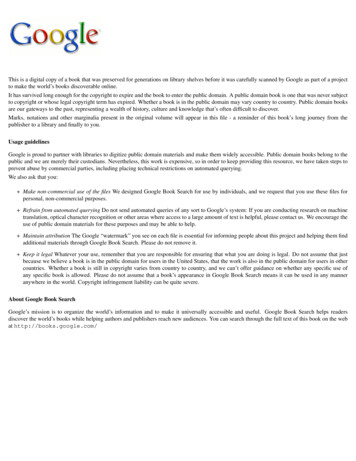
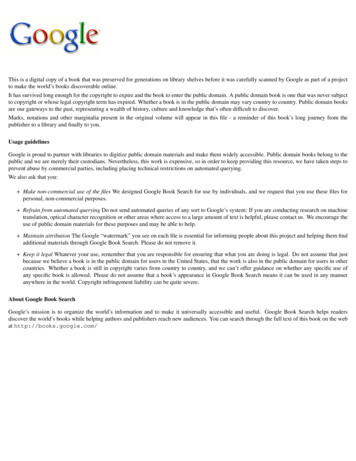
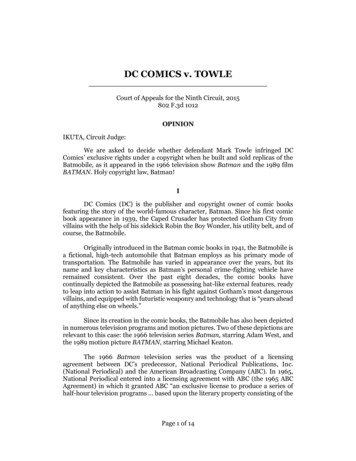
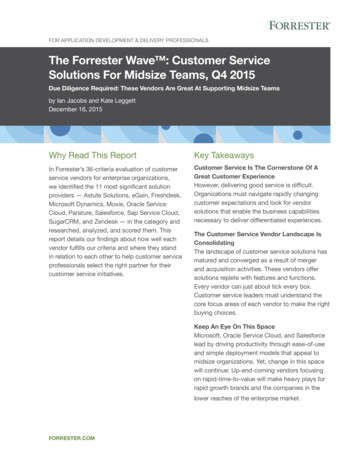
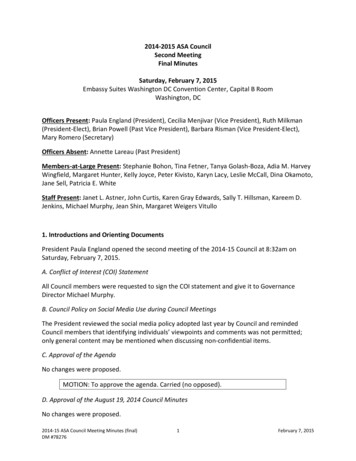
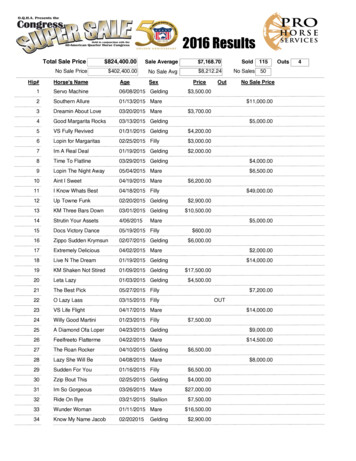
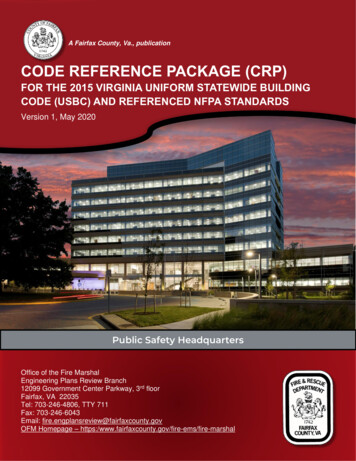
![Clinical Biostatistics [CLB]](/img/6/study-guide-clb-2021.jpg)